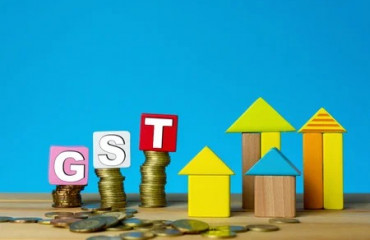
Comptroller and Auditor General of India (CAG) has presented a performance audit report on the E-Way Bill (EWB) system under GST for the period from April 2018 to March 2022. The audit aimed to assess the system’s effectiveness in protecting government revenue and the efficiency of departmental enforcement. The report highlighted several issues, including instances of taxpayers not paying or underpaying tax liabilities.
Comptroller and Auditor General of India (CAG) has presented a performance audit report on the E-Way Bill (EWB) system under GST for the period from April 2018 to March 2022. The audit aimed to assess the system's effectiveness in protecting government revenue and the efficiency of departmental enforcement. The report highlighted several issues, including instances of taxpayers not paying or underpaying tax liabilities. Specific observations included cases of composition taxpayers making interstate supplies and crossing turnover thresholds, taxpayers generating EWBs but not filing returns, and the use of a single invoice for multiple EWBs. The audit also found discrepancies where taxpayers availed more Input Tax Credit (ITC) than was available according to their GSTR-2A data. To address these issues, the CAG recommended system alerts for composition taxpayers who cross their threshold limits, identification of taxpayers who generate high-value EWBs but do not discharge tax liability, and alerts for multiple EWBs with a single invoice. The report also pointed out administrative deficiencies in enforcement, such as a lack of dedicated setups for EWB verification, insufficient resources, and inadequate use of analytical reports, and made recommendations to improve these functions.
PRESS RELEASE
OFFICE OF THE COMPTROLLER AND AUDITOR GENERAL OF INDIA
New Delhi
12th August, 2025
CAG Audit Report on E-Way Bill System Under GST Presented in Parliament
Performance Audit Report of the Comptroller and Auditor General of India on E-Way bill system under GST (Report No. 12 of 2025) for the year ended March 2024 was presented in Parliament here today.
The Performance Audit (PA) on E-Way Bill (EWB) System under GST was taken with two audit objectives to examine effectiveness of EWB mechanism in protecting revenue interest of the Government and to evaluate efficiency and effectiveness of the preventive activities of the Department in enforcing EWB provisions. EWB transactions pertaining to the period from 1 April 2018 to 31 March 2022 were covered in this PA.
A risk based approach was adopted for this PA and samples were selected based on the Key Problem Areas (KPAs) identified – 2,244 EWBs relating to 956 taxpayers and preventive units under 58 Commissionerates were selected for the two audit objectives, respectively.
Major audit observations are as under:
In respect of effectiveness of EWB system in protecting revenue, Audit noticed 470 instances amounting to ` 576.86 crore of non/ short discharge of tax liability by composition taxpayers generating EWBs for inter-State supplies and generating EWBs crossing threshold limit of composition scheme, taxpayers generating EWBs but filing nil returns, taxpayers generating EWBs but not filing returns, taxpayers generating EWB after the cancellation of registration and taxpayers using same invoice for generating multiple EWBs.
(Paragraphs 4.1.2 (a) to (f))
Audit observed suppression of turnover by 18 taxpayers pertaining to three Commissionerates who generated 3,137 EWBs for outward supplies of ₹ 168.21 crore but did not discharge the tax liability of ₹ 81.11 crore with interest of ₹ 45.19 crore due to either non-filing of returns or non/short reporting the turnover in their returns.
(Paragraph 4.1.4)
Audit also observed that 72 taxpayers pertaining to 28 Commissionerates had availed ITC of ₹ 1,357.89 crore through GSTR-3B, however, ITC available as per GSTR-2A was ₹ 1,202.48 crore. Thus, there was mismatch between ITC available as per GSTR-2A and that availed by the taxpayers through GSTR-3B to a tune of ₹ 155.41 crore.
(Paragraph 4.1.5)
Some of the recommendations Audit made to strengthen the EWB system are:
(i) alert the Composition Levy Scheme (CLS) taxpayer, as well as the departmental officer, about crossing of the threshold limit and for generating EWB for inter-State supply.
(ii) identify the taxpayers generating high value EWBs but not discharging tax liability and reporting such taxpayers to the Proper officers.
(iii) alert taxpayer and departmental officer on generation of multiple EWBs with single invoice/similar invoice.
(iv) issue suitable instructions to the proper officers for considering EWBs generated by the taxpayer before cancelation of registration retrospectively and taking action for recovery of tax wherever applicable.
(Paragraph 6.2)
In respect of preventive functions of the Department, Audit observed administrative deficiencies such as not having dedicated setup for verification of EWBs, insufficient patrolling vehicles, inadequate manpower, not having targets or insufficient verification of EWBs against the targets and insufficient use of analytical reports of NIC on EWBs.
(Paragraphs 5.1.1.1 to 5.1.1.6)
Audit also observed deficiencies in interception of vehicles by the Department, involving non/short collection of tax and penalty and non/short creation of demand in the system. Discrepancies observed in 293 instances involved tax effect of ₹ 3.39 crore.
(Paragraph 5.1.2.2)
Some of the recommendation Audit made to improve the preventive functions are:
(i) ensure availability of manpower and patrolling vehicles for adequacy and effectiveness of EWB verification to protect revenue.
(ii) issue suitable instructions for using NIC Analytical reports on EWBs for planning, execution and monitoring the interception of vehicles.
